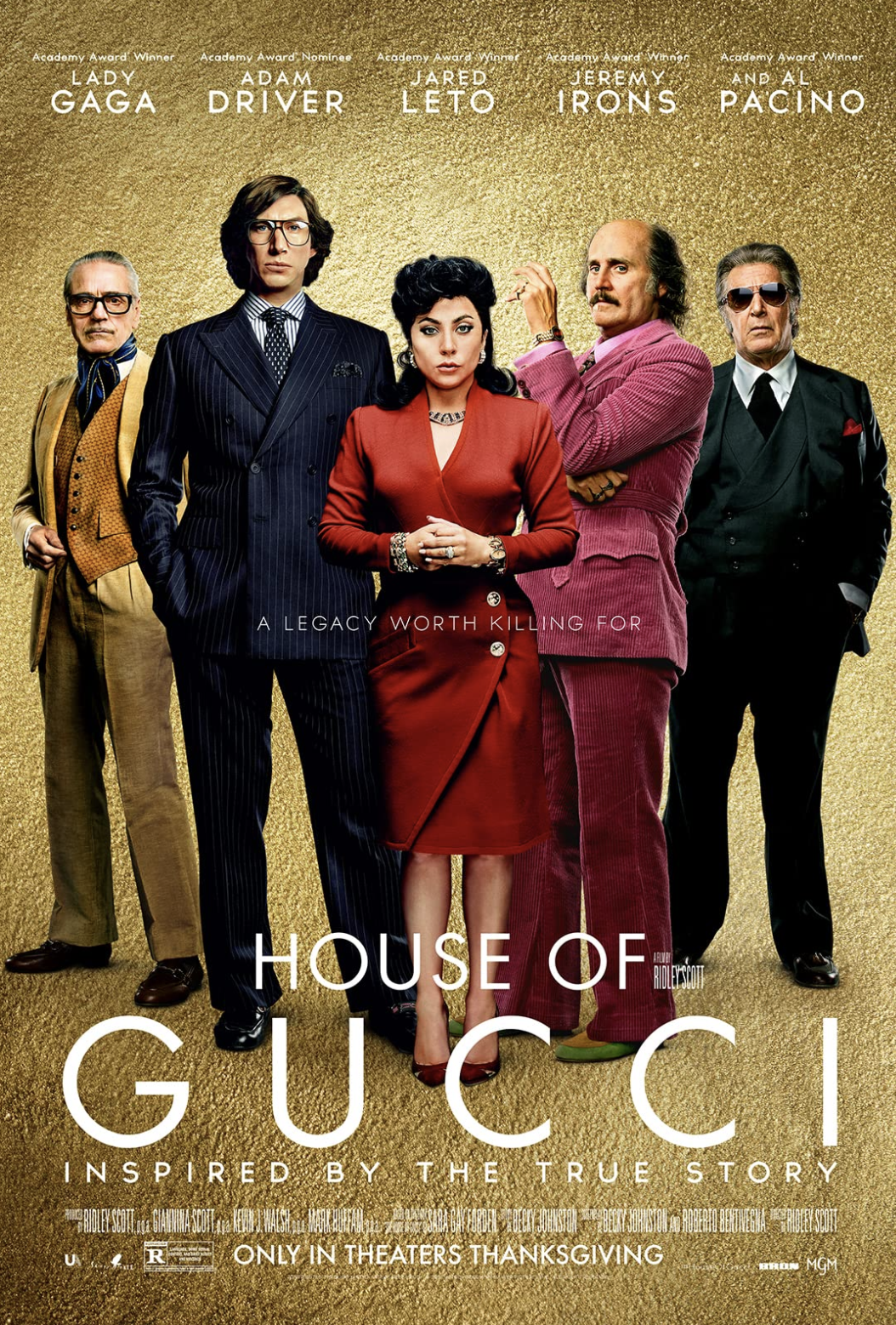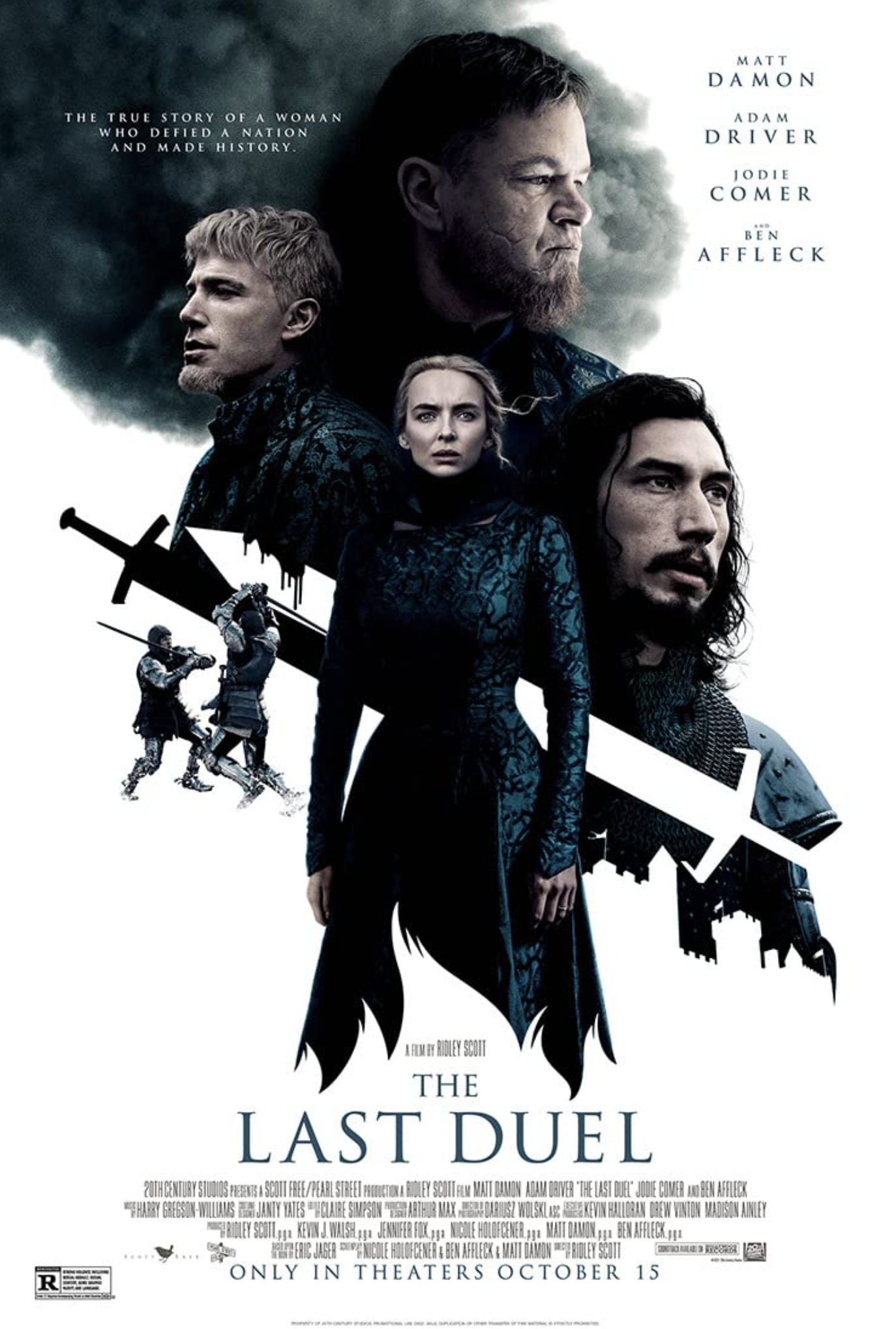
“House of Gucci”
November 22nd, 2021 Posted by pamela Review 0 thoughts on ““House of Gucci””“House of Gucci,” directed by the renowned Ridley Scott, has taken a lot of heat about his actors’ inability to nail an Italian “accent.” The story, however, is what should bind this film together like gorilla glue so that we don’t even notice the atrocious inconsistencies and inaccuracies in their dialectical difficulties. Unfortunately, it does not. The story is nothing more than a dull mess that spins its wheels as the actors appear to have all been given different interpretations of the script. Lady Gaga gives us a soap opera-esque rendition of “Patrizia,” her character, and Jared Leto and Al Pacino (the most entertaining of the massive ensemble) thought it was a comedy, while Adam Driver delivers a subdued dramatic performance in his supporting (?) role. He has the lead, he just doesn’t know it. The list goes on and on, and while these different tones in a film can add depth and layers like a symphonic harmony, “House of Gucci’s” mixed tones creates a cacophony like toddlers given percussion instruments.
The story begins, warning us that the name Gucci is cursed, back when this fashion forward family ruled the industry. With its roots strongly held in Italy, the family branched out to the United States with Aldo (Pacino) at the helm here. The family dynamics alone should have and could have been a salacious joy ride, but becomes nothing more than a journey on a jam-packed Greyhound bus…you’ll want to get off as soon as possible without reaching the end.
Scott takes his time in setting up the relationship between Patrizia and Maurizio Gucci (Driver). It’s a sweet and innocent courtship that results in Maurizio leaving his father, Rodolfo (Jeremy Irons) and his entire family fortune behind to marry the love of his life. Warning his new head-strong wife that money is the root of all evil, Patrizia re-establishes relationships across the sea with Aldo, estranged from his brother Rodolfo and whose son Paolo (Leto), a bumbling idiot and complete disappointment, lures the young married couple back into the Gucci privileged lair. With plenty of backstabbing and undermining relatives to relinquish their stock shares in the company, along with affairs, legal issues, and death, the curse continues on the Gucci name. The rest, if you recall from the news, is history, but this is Patrizia’s story of her demise and its cause.
The film is based on the book by Sara Gay Forden with the screenplay by Becky Johnston and Roberto Bentivegna. As is typically found in adaptations, you can’t include every detail from the book on the screen, but Scott seems to try with the running time of 2 hours and 37 minutes. With so many characters who had the potential to be developed more completely, this easily could have been a limited television series. However, we get disjointed and incomplete stories and subplots and characters with whom we have no connection.
Lady Gaga is physically transformed into Patrizia, but it is Leto who is unrecognizable as Paolo. He and Pacino — both have totally different speech styles — are the highlight as the father and son who ride an interesting and gut-wrenching roller coaster of life. Together these two actors and their characters attempt to resuscitate the film, but alas, it is too much for them. Not even Salma Hayek’s Pina the Tarot Card Reader can stop the inevitable catastrophe of the film.
“House of Gucci” tries too hard to be too much in too little time. With distracting accents, no real focal point, too many tones, and actors appearing to have little direction, the film slogs along to its bitter end.
1 1/2 Stars

